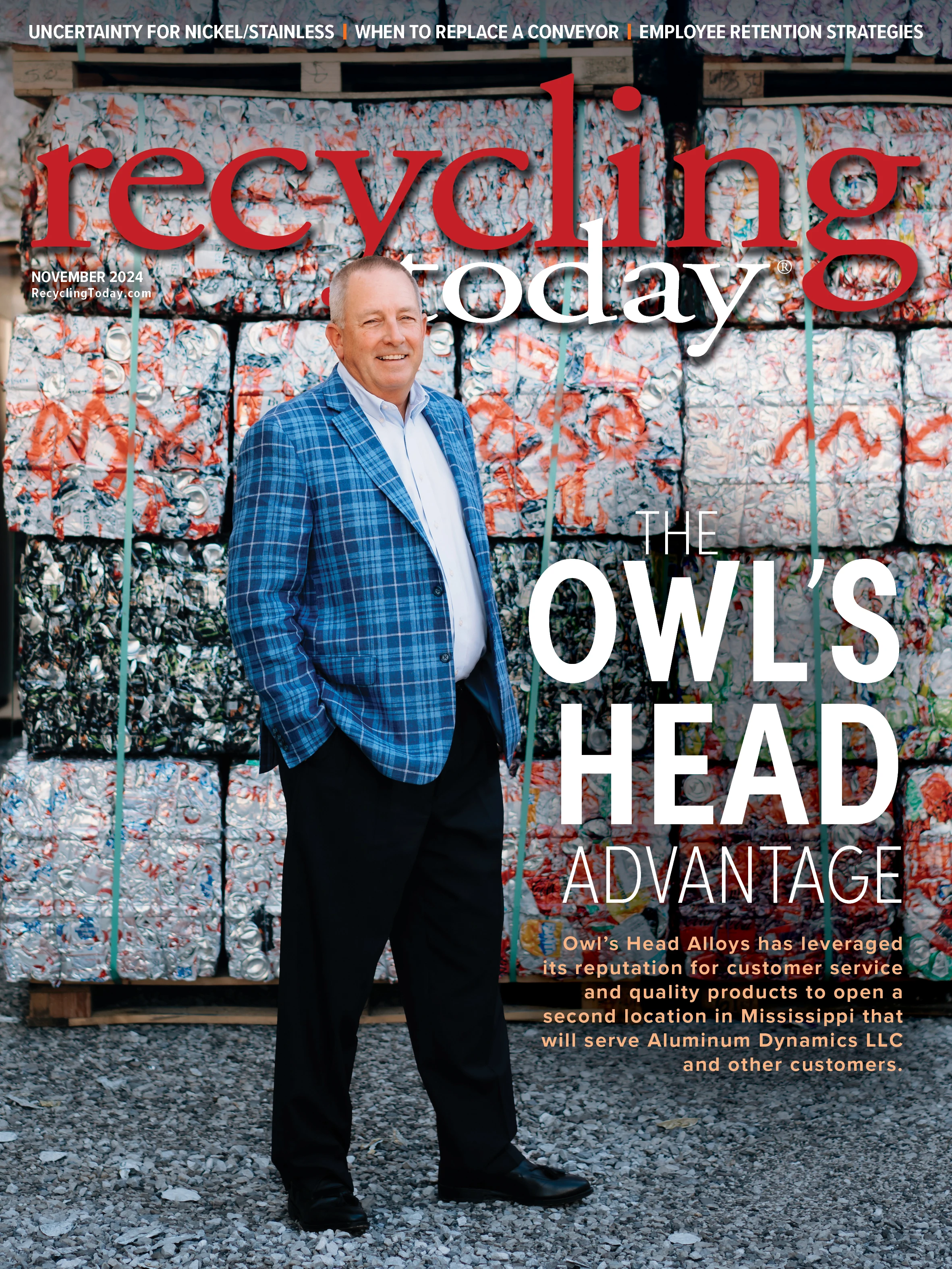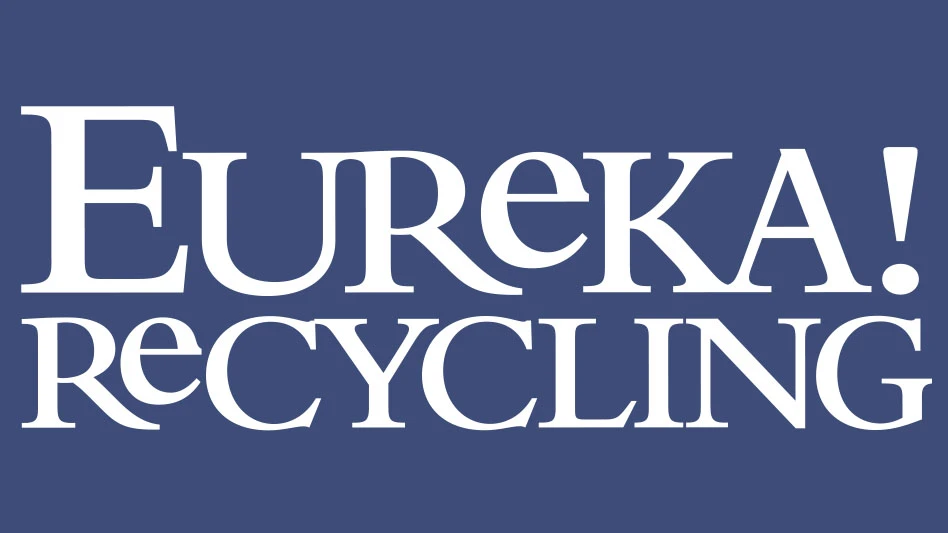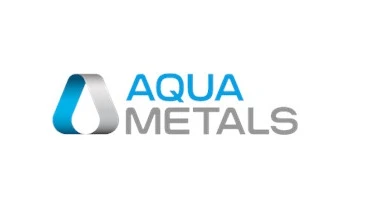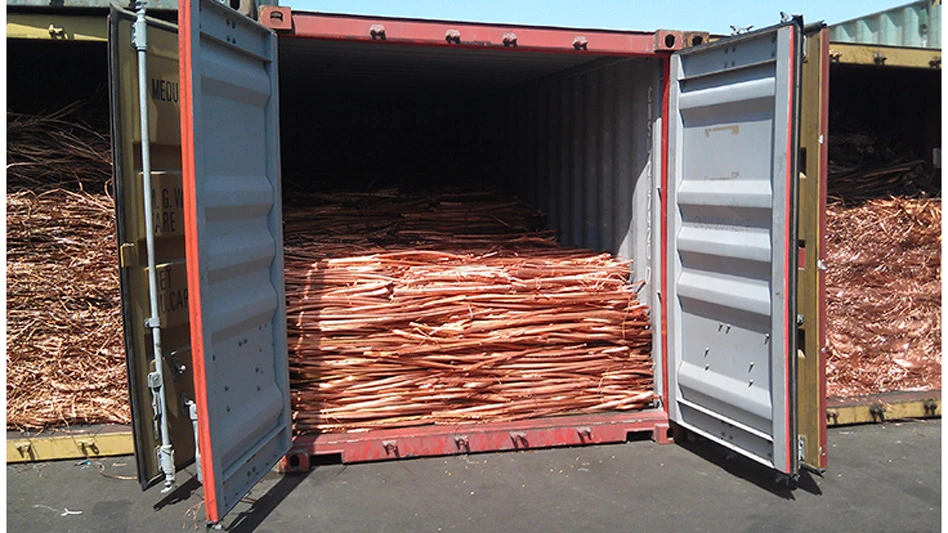
Joel Litman has been described by his peers as representing “the best of our industry” and someone who has served with “dedication and distinction.”

Texas Recycling
Litman is co-owner and president of Texas Recycling, a Dallas-based paper recycler he established in 1992 with his father, Stan, and brother, Craig. The family started the business with nothing more than a few folding chairs, a table and a phone but, “pound by pound,” Joel says, the business began to grow.
The company primarily focuses on buying and selling high grades like sorted office paper and deinking grades, as well as some bulk grades like old corrugated containers. Texas Recycling’s services have since expanded to include document destruction and metals recycling.
“Our approach to business is building long-term partnerships with generators and consumers, providing a high level of service and a quality product and being respectful to employees, customers, vendors and the community,” Joel says.
His service to the recycling industry is vast. Joel has been a member and leader within the former Institute of Scrap Recycling Industries, now the Recycled Materials Association (ReMA), Washington, as well as its Paper Stock Industries (PSI) and Gulf Coast Region (GCR) chapters. Along with serving as a board member for then-ISRI, PSI, GCR and the Global Recycling Standards Organization, which oversees the Recycling Industry Operating Standard (RIOS), he was president of PSI from 2012-2014 and ran as a candidate for then-ISRI’s national secretary/treasurer position in 2022.
In October, Joel was honored at the Paper & Plastics Recycling Conference in Chicago with the ReMA PSI Lifetime Achievement Award—joining his father on the list of recipients—recognizing his many years of service and leadership.
In the following interview, Litman looks back on his four decades in the recycling industry, lessons he’s learned along the way and what it means to have an “impactful presence.”
Recycling Today (RT): You worked with your father and brother before establishing Texas Recycling. What were you doing before? Did you always envision working with your family?
Joel Litman (JL): My father bought a paper and rag scrap business, Daltex Waste Material Co., in 1980 in Dallas, and I joined him four years later. My goals were to earn a bachelor’s degree in journalism from the University of Missouri, then become a sportswriter for a daily newspaper. Once I achieved these goals—and after a stint at a public relations/advertising firm in Dallas, where I accompanied such celebrities as a young Tom Cruise, a young Patrick Swayze and a young Bette Midler on film publicity and promotional tours—I joined my dad. I didn’t have a specific plan but took advantage of an opportunity at the right time.
RT: What was your background in recycling before forming Texas Recycling? What were the challenges of starting up that business?
JL: I had only eight years in the recycling industry before forming Texas Recycling with my father and brother, Craig. All of us brought the backgrounds of working for larger companies in different industries to Daltex and Texas Recycling. Our experiences with providing customers with high levels of service, sales and communications and being hands-on rippled through all facets of our business from suppliers to consumers to vendors and employees.
When Texas Recycling opened Sept. 1, 1992, after my dad sold his share of Daltex Waste Material, all we had were a folding table, four folding chairs and a “brick” cell phone inside a 30,000-square-foot building, a bank loan and the wills and determinations of a father and two sons to succeed. We began to contact generators, retail customers, consumers, equipment dealers and truck dealers to move forward and secure material and, pound by pound, material began to come in. A few weeks later, our first load of high grades was shipped, and we’ve grown from there.
RT: How has Texas Recycling evolved since 1992?
JL: From three employees to more than 70 today. When we opened, our focus was deinking grades and high grades. Soon, we added metals along with our information destruction and production destruction company, Action Shred of Texas.
Our first salesperson retired after only a short time with us. One of our competitors’ sales reps was calling on our accounts, and an opportunity came up to meet her. Craig and I visited Kathy DeLano and, soon after, we offered her a sales position with our company. That was nearly 20 years ago, and it’s been a great relationship. [DeLano currently is vice president of sales at Texas Recycling.]
[We] welcomed the third generation of family to the business in 2011 when my daughter, Hillary Freed, joined to handle marketing and customer service. When we moved to a much larger facility in 2015, space was ample enough to accept loose corrugated, which we were unable to do in our previous facility, and our footprint has grown from 30,000 square feet to more than six figures today. Our secondhand fax machine has given way to computers and hand-held electronic devices; our trucks have GPS tracking devices and cameras on the outside of the cabs.
Technology has made our production easier with real-time inventory tracking of the production of baled material and tracking the loading of the shipments. One daily routine that has not, and will not, change is having an individual answering incoming calls during office hours. That live voice with a warm greeting answering calls is meaningful, impactful, personable and caring. That’s who we are.
RT: Texas Recycling processes primarily high grades; how has that market changed over the last 30-plus years?
JL: The volume of high grades, from preconsumer to postconsumer, has declined. There are fewer commercial printers, fewer printing and ancillary trade shops, fewer newspapers and fewer people working in offices. These dynamics impact how much preconsumer deinking grades are generated and how much sorted office paper is collected. There are more bleached and unbleached packaging grades generated, and there is a trend away from plastic packaging towards fiber packaging. Consumer products need to be in a package to then be placed on a store shelf.
RT: What is Texas Recycling’s approach to business and approach to recycling?
JL: Our approach to business is building long-term partnerships with generators and consumers, providing a high level of service and a quality product and being respectful to employees, customers, vendors and the community. As for our approach to recycling, we provide services and education to generators to help them achieve their goals on sustainability and keep material out of the landfill. We also help educate them that not every item can be recycled.
RT: How have the relationships you’ve built with customers set the business up for success? How important are those relationships when the market is facing turmoil? And why is the recycling business such a relationship-driven business?
JL: Our business model revolves around long-term partnerships and relationships, [like] commercial marriages. We want to have face-to-face relationships with our suppliers and consumers, and our team works hard to make that happen and to maintain it. We want our customers to know who we are, so when they have a special need, a project or another issue, they don’t have to think about who their recycler is. This gives the customer confidence in its recycling vendor: us.
When markets are in turmoil, which they have been in throughout the years and will be in again, we want our customers to know we will be there to service them, and we want our customers to know that we can be counted on to be their service partner through any ups and downs of any business cycle. That’s important because our industry is capital-intensive, where equipment, processing, transportation and logistics are integral parts to servicing the customer. It’s not an industry where you select a product from a shelf. There are long-term service commitments made. Our company has a buy-back center where the public sells newspapers, corrugated, paper, aluminum cans and tin. Through the ups and downs of the markets, we’ve always taken these goods. Pricing adjusts with the markets, and we’ve remained open.
RT: How has your business adapted in response to events over the past several years, like the pandemic, economic uncertainty, policy/regulations, etc.?
JL: Events such as these offer opportunities to recalibrate, to see if certain parts of the business are still viable. During the pandemic, no employees were laid off. There was a backlog of product in storage that had to be processed and that kept everyone busy, although at reduced hours. It also served as a rally cry and a unifier throughout the company—and the backlog soon disappeared.
Economic uncertainty also provides opportunities to reexamine processes and service work to determine if certain elements of the business continue to remain profitable. Maybe some accounts have changed their product mix and are no longer a fit for our business, or maybe they’ve downsized and do not generate the amount of recyclable material as they had in the past. On the other hand, maybe they’ve grown and their service needs have increased (which we love). Governmental policies and regulations have also caused us to look at some business lines that are no longer viable to process and are tightly regulated, such as electronics and certain nonferrous metals.
RT: What are the biggest challenges you see currently facing the recovered paper industry and the overall recycling industry?
JL: Much like any industry, whether transportation, retail or finance, they evolve. Old generations move on and new generations come in with new ways to do things. Challenges include the downsizing of the printing industry—one of the top generators of recycled materials for consumers in our industry. With less deinking and high grades being generated, mills consuming these grades are working on how to replace these vanishing grades.
The perception that everything can be recycled presents challenges, too. Organizations such as ReMA are working to help educate the public on what can be recycled and why. The education challenge is immense among the public and private sectors, but necessary to continue to capture materials for recycling and reduce the amount of volume going to the landfill.
Governmental policies are also challenging. Our industry has been around for decades and has an infrastructure in place to capture materials and push them through the recycling supply chain. Many governmental entities and even consumer product companies are realizing this and are eager to become involved with recycling. They are welcome to join the fray, but also have to understand that we’ve been around a long time and there is an order to how our industry works. It’s supply-and-demand based. If the demand is there for products, you then find the supply to make those products. One can’t just collect the supply without the demand for it and believe that it is recycling.
RT: What are the biggest lessons you’ve learned over the years?
JL: When I was training for running events, I had a ready answer when the staff at the neighborhood running store would ask what I am training for. Now, when the young staffer asks a senior like me what I’m training for, my answer is “life.” It makes them pause since the response is totally unexpected, but then they get it.
This industry is diverse in its people, companies, product mix, supply chains, manufacturing, etc. It teaches life experiences. Look at the supply-and-demand model we deal with daily, the workforce challenges [and] governmental challenges, the highs and lows of pricing and margins. I’ve learned when markets get strong, don’t get excited because they will go the other way, and when markets are weak ... they will go the other way. You learn the power of relationships and partnerships ... and how to be reliable problem-solvers.
Being a good neighbor in your community also is very beneficial. Just as you’re a good neighbor [at home], it’s essential to do so where your business is. With recycling facilities facing NIMBY (not in my backyard) challenges, you need to show your neighbors who you are, what you do and the positive impact your business has on the community, such as employment opportunities, supporting local schools and city entities and assisting wherever possible. Your presence is very impactful.
RT: What advice would you give to someone entering a career in recycling?
JL: Recycling has long-term environmental impacts on our world. How to repurpose materials into new products is essential to the viability of our world and its resources. Those looking at our industry as a career can bring new thought processes and technology to an industry that has been around for centuries. Some get into the business ... to help the environment, which is a very altruistic goal, but it has to be profitable. The industry is generally not supported by taxes and is capital-intense.
Also, [be] active in the industry’s trade association, ReMA, which has more than 1,600 members handling paper, metal, plastic, electronics and other commodities. It’s a great resource for networking with industry peers and provides safety programs and represents the industry in helping with governmental policies.

Explore the November 2024 Issue
Check out more from this issue and find your next story to read.
Latest from Recycling Today
- Sofidel agrees to purchase Royal Paper assets
- US Plastics Pact report charts expansion path for recycled content in packaging
- USTR announces phased measures designed to address China’s shipbuilding dominance
- APR, RecyClass release partnership progress report
- Clearpoint Recycling, Enviroo sign PET supply contract
- Invista expanding ISCC Plus certification program
- Redwood partnership targets recycling of medium-format batteries
- Enfinite forms Hazardous & Specialty Waste Management Council





